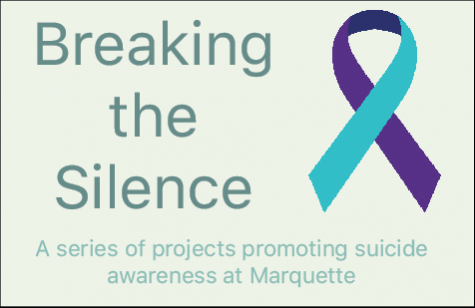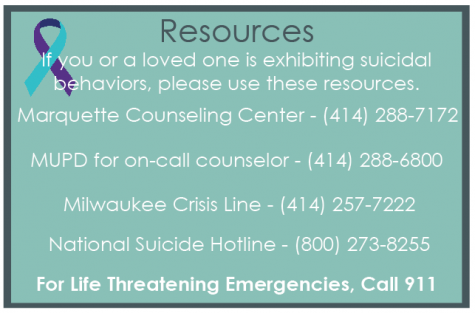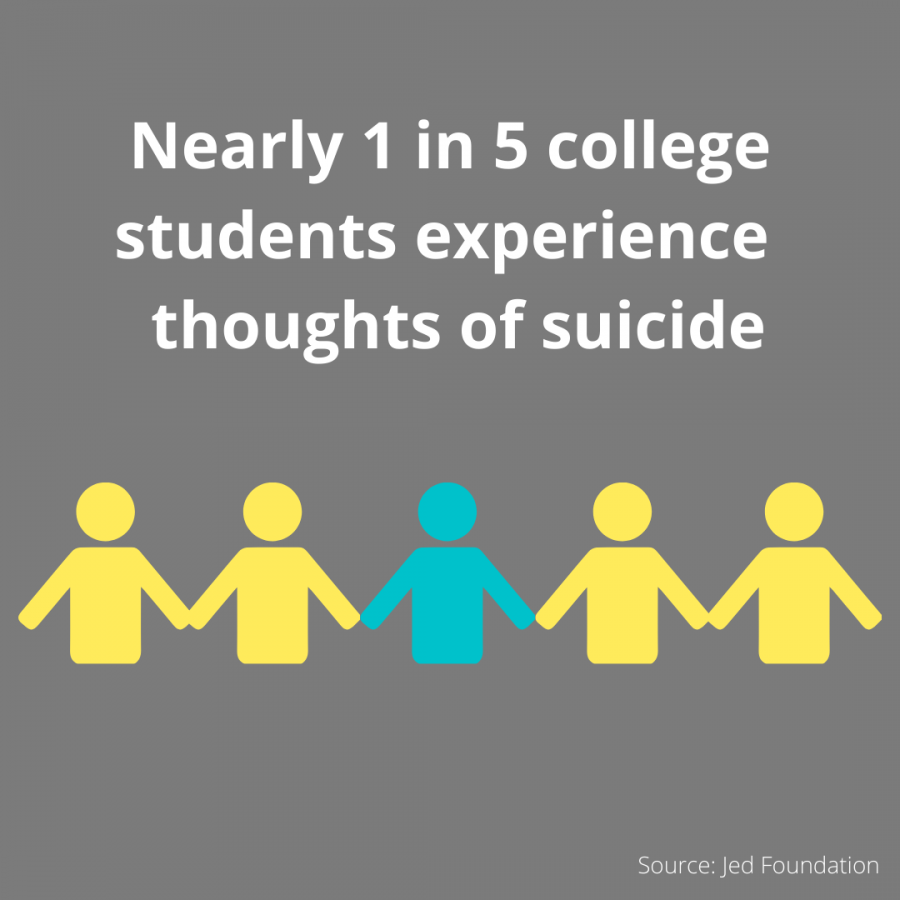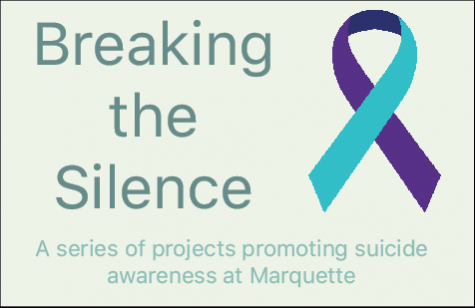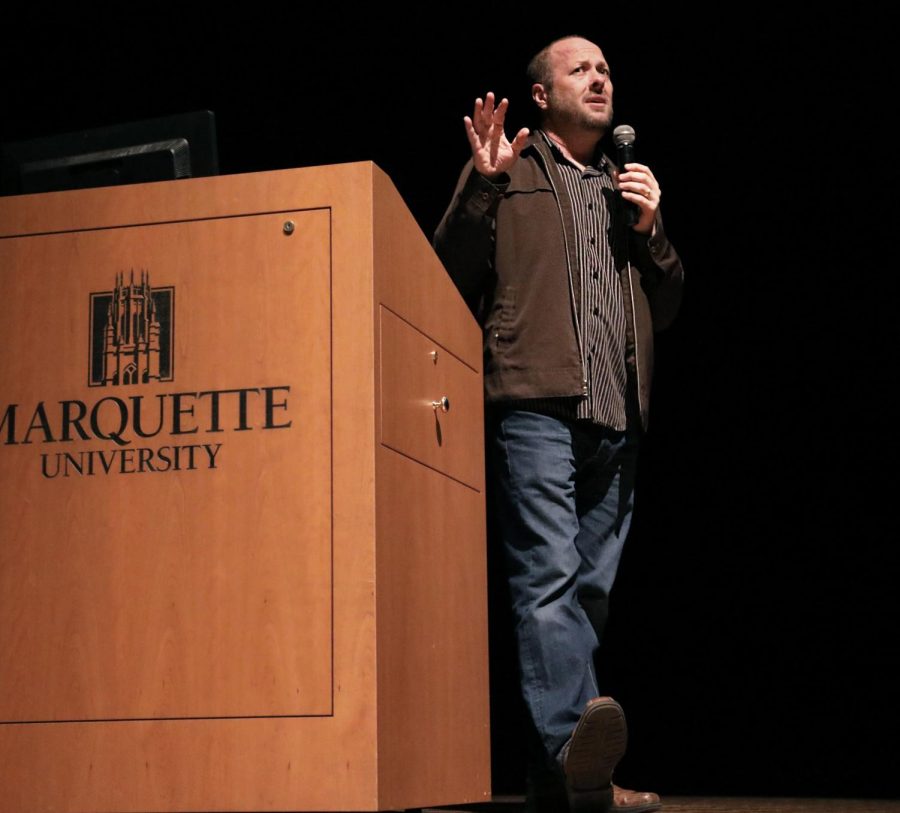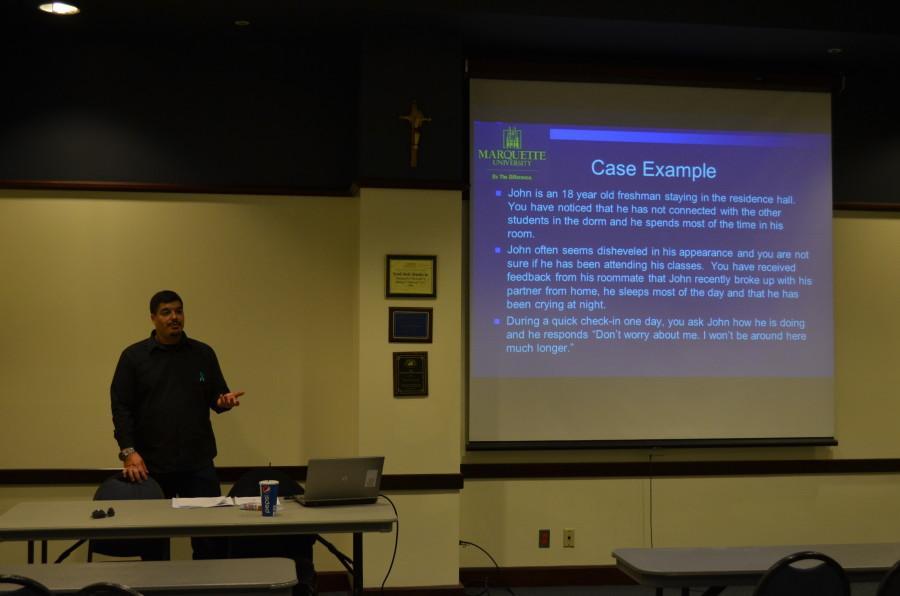Over the course of the semester, the Marquette Wire has been working on its suicide project. The Wire named the project “Breaking the Silence” in an attempt to facilitate a necessary, yet currently lacking conversation around college-age suicide.
In the media, suicide is often either ignored or glorified. In fact, most major news outlets refuse to cover suicide at all. Wire Projects Editor Devi Shastri explained this in a Marquette Radio interview. Shastri said media outlets might not cover suicide in an attempt to avoid causing the family increased pain, calling attention to the death or prompting a “copycat suicide,” in which someone contemplating suicide is triggered by someone else’s story and repeats the act.
The threat of copycat suicides has been widely discussed in the media lately because of the hit Netflix series “13 Reasons Why,” whose graphic depiction of suicide many believe could incite suicidal thoughts.
Suicide is an issue that deserves to be addressed accurately and appropriately. Like the title of the Journal piece — “A strong line of fighters” — indicates, a victim of suicide is a fighter. A victim of suicide often struggles with mental illness, just like a victim of cancer struggles with that disease.
The Wire’s aim in publishing the accounts of Marquette students like Marie Crowe, who has struggled with suicidal thoughts, and Jenny Fischer, whose mother died of suicide, is not to use the media to glorify a personal struggle. Rather, by sharing these stories we want to encourage more conversations about college-age suicide. We want to give these students a platform to share their feelings so that others who have the same emotions realize these experiences are not abnormal, selfish, shameful or wrong.
As part of a 2009 University of Texas at Austin study, Marquette participated in research that found 47 percent of university students who struggle with suicidal thoughts did not tell anyone. Two-thirds of those who did decide to tell someone told someone they trust, like a friend or family member, rather than a counselor or university professional trained to deal with these matters.
It’s more likely that someone will approach a friend than a trained professional for help, and it’s important to know how to address the conversation and be aware of the resources available if a struggling friend confides in you. By giving a face to the issue, we want those who have not suffered to realize that their friends, classmates and family members might be. “Breaking the Silence” extends across all Marquette Wire platforms — The Tribune, Journal, MUTV and radio — to keep fostering a conversation on campus about suicide. Starting with Marquette students, we want to erase the stigmas behind suicide and ultimately save lives.
